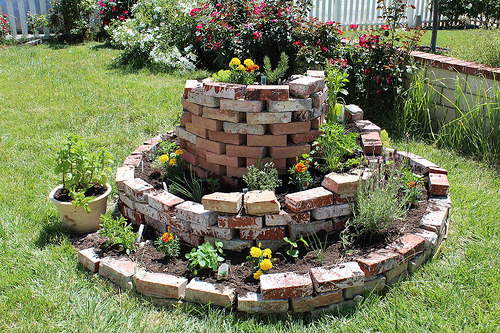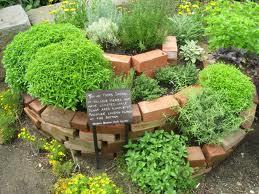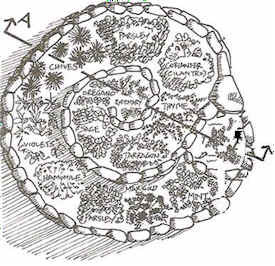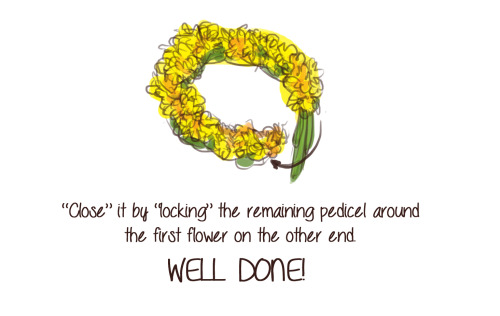When You Find An Academic Source That’s Perfect For Your Paper But It’s Behind A Pay Wall
when you find an academic source that’s perfect for your paper but it’s behind a pay wall

More Posts from Sunlightandbasil and Others




im very grateful for the lessons in photography i was taught in stop motion class because just now they made it possible to photograph the stars with my phone in spite of the camera usually not detecting the light of stars because theyre so dim,,,, enjoy these shiny motherfuckers
Hey Goblins, uh
Did you know, that you can make an AWESOME journal for your adventures ALL ON YOUR OWN from a cereal box and paper/scraps that you likely have at home/can get from friends or family/you may find around your environment?
They’re called Junk Journals and they’re my entire life.
Im gonna do my best to walk you through how to make one! First, get you a mini cereal box! I use boxes from those cool multipacks of cereal that you can find at Walmart!

And then cut it out so it looks like this! (I already had one cut, so I’m gonna use that)

That “nutrition facts” side is gone become your spine!
Next, find some paper to use to decorate your cover! I was lucky enough to be gifted a bunch of scrapbooking paper, so I’m gonna use that, but you can also use newspaper, paper from books/magazines, junk mail, napkins, paper towels (excellent texture), etc!

Go ahead and glue that paper to your box (to cover the cereal logo) and cut it out! It’ll look like this;


Next you need to find your pages! Again these can be anything! Junk mail, envelopes, receipts, food wrappers, magazine/book pages, scrapbook paper, computer paper, construction paper, ANYTHING. Just grab a whole bunch!
You’re gonna want to fold them in half and cut them to the size of one of the covers of your box, and layer other pages inside of it to make your signatures, like this!


Each signature should be about 7-10 pages. You don’t want them too thick, otherwise the inner pages start sticking out when folded in half. You’re gonna have a LOT of these signatures, as you wanna fill the area in the spine as best as possible. For this one I’m using 7 page signatures. Here’s a pic to show just how much paper you’ll need

Each of these signatures are 7 pages, 6 signatures have only filled about half of the spine, so I’ll need probably 6 more.
Next you gotta figure out how you want them in your journal. Personally, I like to sew them into the spine, but you can also keep them in the spine with rubber bands, so you can have removable pages! (Be weary that rubber bands may break over time! So you may want to always keep extra bands near it to replace in case one snaps. This is why I prefer sewing them in) I find it best to look up on YouTube how to sew in signatures, just because having someone walk you through it where you can see what they’re doing is easiest. If you can’t access YouTube, there’s plenty of text tutorials on how to sew in signatures online, or you can message me! I’m not gonna go too into detail, but here’s the jist;


Okay so I’m a forgetful gob and I hecken forgot to take pictures as I was going along kahshshshsh
But essentially, I sewed in the pattern similar to the one I drew. The dots are where the needle goes all the way through to the back. I also like to use rubber band as an extra mode of support but you can do one or the other. I also like both cuz I can tuck stuff in em between the pages. Since I didn’t take more pictures; I’d really recommend looking up a how-to on YouTube or w/e if my badly drawn diagram isn’t clear enough (heh sorry about that)
Next, I glue fabric to the spine. It spruces it up quite a lot and holds the rubber bands in place, plus it give more support to the spine since there’s gonna be a lot of strain on it.
Only 10 photos per post, so I gotta post this and reblog it with the rest.



Three FREE Online Video Courses Every Artist Should Take.
Below are three absolutely FREE instructional art courses for Supersonic Art readers:
Anatomy Master Class: Step-by-step instructional videos on drawing the human figure, classical proportions, skeletal and muscle anatomy, drawing realistic portraits and much more.
Old Master’s Academy: This course reveals all you need to know about art materials for oil painting, color theory and rules of mixing paints, the know-how of the indirect method of painting, and the step-by-step sequence of creating a painting in the Old Masters’ style.
Drawing Academy: An online Drawing Course and Art Community where you can learn how to draw in the comfort of your home and benefit from the support of Academy tutors and fellow students.
15 reasons to build an herb spiral for your garden (By Jean Bardot, Natural News)

(By Jean Bardot, Natural News)
Whether you’re a city mouse or a country mouse — with a high-rise patio or 1000 acres — building an herb spiral near your kitchen allows you to partake in the sustainable permaculture revolution and have fresh organic culinary herbs at your fingertips. An herb spiral is a compact vertical garden built on specific principles allowing for individualized management of wind and water flow to create the ideal garden in a limited amount of space.

The spiral is a natural form that provides an efficient method for managing space, storing and sorting. Using the natural universal design of a spiral, the forces of gravity and water flow are utilized to their fullest allowing for proper drainage downhill. Herbs that thrive on drier soils live at the top, whereas those needing more moisture reside at the bottom where water collects. This form allows for planting of a widely diverse number of plants, and creates natural, sunny and shady areas — a perfect miniature microclimate landscape environment. The herb spiral as a permaculture form that allows you to create your own ecosystem and become self sufficient. The format can be adapted to large gardens if space is available.
Stone or block building materials allow for retention of heat and insulate plants in colder weather or at night, while acting as the backbone for the structure. Collect water at the bottom and have a small fish or frog pond or even a bog and grow edible water plants. An herb spiral can be built even on a concrete foundation and filled with the richest biodynamic, organic earth to support any plants included.

The spiral should always be built to move in the direction of water drainage in whatever hemisphere it’s located in — for example, in the Northern hemisphere, water runs off in a clockwise direction and the opposite is true for the Southern hemisphere. This allows for optimal positioning of the pond at the bottom and reduces evaporation. The spiral can be built as a round or oval shape to take advantage of the movement of summer sunlight.

15 REASONS TO BUILD AN HERB SPIRAL FOR YOUR PERMACULTURE GARDEN
1. Maximize growing space to grow more food. 2. Multiple microclimates available for optimal plant growth.

3. Healthier plants where growing needs are met and companion planting is easy to reduce insect problems and foster beneficial plant relationships for better growth. 4. Aesthetic garden focal point.

5. Maximizes space even in very small areas on top of concrete or in high-rise buildings. 6. Harvesting access is easy and all plants are effortlessly accessible. 7. No bending, everything is at waist height — hooray!

8. Save money by growing your own food. 9. Eat organic, using heirloom seeds and avoid pesticides and genetically engineered seeds. 10. Reduces maintenance, little weeding and easy to turn and mulch.

11. Manage water amounts and use natural forces to perpetuate the growing season. 12. Reduce building costs when you use local available materials. 13. Use drip irrigation or a small sprinkler for easy watering and irrigation.

14. Create a bio-diverse habitat for creatures who come to visit. 15. Build an herb spiral to grow medicinal herbs to avoid Big Pharm drugs.
Sources for this article: http://www.mitra.biz http://themicrogardener.com http://welcometovoluntarysimplicity.wordpress.com http://www.mysquarefootgarden.net/creating-an-herb-spiral/
no, listen, when I say I want to integrate more specific solarpunk stuff in my life, i don’t mean to ask for yet again new “aesthetic” clothes that now you have to buy or make to show your support of the movement (screw that i’m consuming enough as it is), or more posts about impossible house goals, or whatever, I’m asking you what my options to build a portable and eco friendly phone charger are, im asking you viable tiny-appartment edible plants growing tricks on a budget, im asking tips to slow down when my mind and society tell me im not fast enough, i don’t need more rich art nouveau amateurs aesthetics or pristine but cold venus project, okay, i know i should joins associations where I am tho i’m constantly on the move, thanks for that, just, you know, can we get a bit more practical ??? how do I hack my temporary flat into going off the grid for the time i’m here
I want to try so many little hobbies. Candle making, soap making, basket weaving, wood carving, book binding, baking, weaving, I want to try them all.



A how to make flower crowns with dandelions. Not sure if it will work on other flowers, but as long as the stalk/pedicel is long it should be alright O v O Also I hope it’s understandable ahah
hobbies masterpost!
a really excellent way to reduce anxiety is to pick up a new hobby. find something you’re interested in, learn it, then use it as a healthy and productive way to cope.
learn to play guitar
learn how to make interactive stories with the free program Twine
learn how to make pixel art
learn another language
learn how to build a ship in a bottle
learn how to develop your own film
learn how to embroider
learn how to make chiptunes (8-bit music)
learn how to make origami (the art of paper folding)
learn how to make tumblr themes
learn how to make jewelry
learn how to make candy
learn how to make terrariums
learn how to make your own perfume
learn how to make your own tea
learn how to build birdhouses
learn how to read tarot cards
learn how to make zines
learn how to code
learn how to whittle (wood carving)
learn how to make candles
learn how to make clay figurines
learn how to knit scarves
learn how to become an amateur astronomer
learn some yoyo tricks
learn how to start a collection
learn how to start body building
learn how to edit wikipedia articles
learn how to decorate iphone cases
learn how to do freelance writing
learn how to make your own cards and
learn how to make your own envelopes
learn how to play the ukulele
learn how to make gifs
learn how to play chess
learn how to juggle
learn how to guerrilla garden
learn how to chart your family history
learn how to keep chickens
learn how to do yoga
learn how to do magic tricks
learn how to raise and breed butterflies
learn how to play dungeons & dragons
learn how to skateboard
learn how to do parkour
learn how to surf
learn how to arrange flowers
learn how to make stuffed animals
-
 theskytraveler reblogged this · 5 days ago
theskytraveler reblogged this · 5 days ago -
 sevenseaways liked this · 1 week ago
sevenseaways liked this · 1 week ago -
 kahidlav liked this · 1 week ago
kahidlav liked this · 1 week ago -
 broughtyoubooks reblogged this · 2 weeks ago
broughtyoubooks reblogged this · 2 weeks ago -
 losingtrackoftimeandspace liked this · 3 weeks ago
losingtrackoftimeandspace liked this · 3 weeks ago -
 s0ftest liked this · 1 month ago
s0ftest liked this · 1 month ago -
 bird-icon liked this · 1 month ago
bird-icon liked this · 1 month ago -
 thingsishouldnottype reblogged this · 2 months ago
thingsishouldnottype reblogged this · 2 months ago -
 azuuul reblogged this · 3 months ago
azuuul reblogged this · 3 months ago -
 azuuul liked this · 3 months ago
azuuul liked this · 3 months ago -
 jonathansiwik liked this · 4 months ago
jonathansiwik liked this · 4 months ago -
 marimo331 reblogged this · 5 months ago
marimo331 reblogged this · 5 months ago -
 marimo331 liked this · 5 months ago
marimo331 liked this · 5 months ago -
 the-life-of-stella reblogged this · 6 months ago
the-life-of-stella reblogged this · 6 months ago -
 dazais-lawyer reblogged this · 6 months ago
dazais-lawyer reblogged this · 6 months ago -
 dazais-lawyer liked this · 6 months ago
dazais-lawyer liked this · 6 months ago -
 choosingthelabrynth reblogged this · 6 months ago
choosingthelabrynth reblogged this · 6 months ago -
 silenceresplendant reblogged this · 6 months ago
silenceresplendant reblogged this · 6 months ago -
 shewhobreathesfire liked this · 6 months ago
shewhobreathesfire liked this · 6 months ago -
 candyandoats reblogged this · 6 months ago
candyandoats reblogged this · 6 months ago -
 candyandoats liked this · 6 months ago
candyandoats liked this · 6 months ago -
 smol-but-gay reblogged this · 6 months ago
smol-but-gay reblogged this · 6 months ago -
 holywritingpromptsbatbruh reblogged this · 6 months ago
holywritingpromptsbatbruh reblogged this · 6 months ago -
 hyaskus liked this · 6 months ago
hyaskus liked this · 6 months ago -
 maxwells-daemon reblogged this · 6 months ago
maxwells-daemon reblogged this · 6 months ago -
 maxwells-daemon liked this · 6 months ago
maxwells-daemon liked this · 6 months ago -
 annnnnj liked this · 6 months ago
annnnnj liked this · 6 months ago -
 yearlongchristmasong liked this · 6 months ago
yearlongchristmasong liked this · 6 months ago -
 apolloendymion reblogged this · 6 months ago
apolloendymion reblogged this · 6 months ago -
 apolloendymion reblogged this · 6 months ago
apolloendymion reblogged this · 6 months ago -
 apolloendymion liked this · 6 months ago
apolloendymion liked this · 6 months ago -
 arashimaru liked this · 6 months ago
arashimaru liked this · 6 months ago -
 thesalanderfiles liked this · 6 months ago
thesalanderfiles liked this · 6 months ago -
 andinthatinstantinfinity reblogged this · 6 months ago
andinthatinstantinfinity reblogged this · 6 months ago -
 hakinnas-overactive-imagination reblogged this · 6 months ago
hakinnas-overactive-imagination reblogged this · 6 months ago -
 wannabe-goth-babe reblogged this · 6 months ago
wannabe-goth-babe reblogged this · 6 months ago -
 nobodytellsme-anything reblogged this · 6 months ago
nobodytellsme-anything reblogged this · 6 months ago -
 nobodytellsme-anything liked this · 6 months ago
nobodytellsme-anything liked this · 6 months ago -
 multimediawhxre reblogged this · 6 months ago
multimediawhxre reblogged this · 6 months ago -
 kitkatsnow reblogged this · 6 months ago
kitkatsnow reblogged this · 6 months ago -
 fuzzypurplecloud liked this · 6 months ago
fuzzypurplecloud liked this · 6 months ago -
 multimediawhxre reblogged this · 6 months ago
multimediawhxre reblogged this · 6 months ago -
 charliethemanticore reblogged this · 6 months ago
charliethemanticore reblogged this · 6 months ago -
 galrad liked this · 6 months ago
galrad liked this · 6 months ago -
 queen-elizabrooke reblogged this · 6 months ago
queen-elizabrooke reblogged this · 6 months ago -
 anna8xin1 liked this · 6 months ago
anna8xin1 liked this · 6 months ago -
 raccobell reblogged this · 7 months ago
raccobell reblogged this · 7 months ago -
 pezsworld reblogged this · 7 months ago
pezsworld reblogged this · 7 months ago

